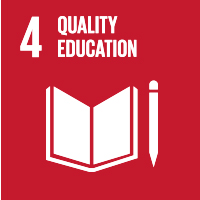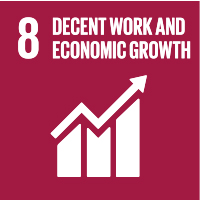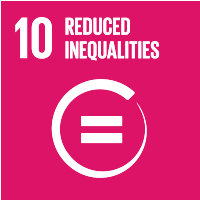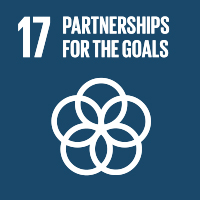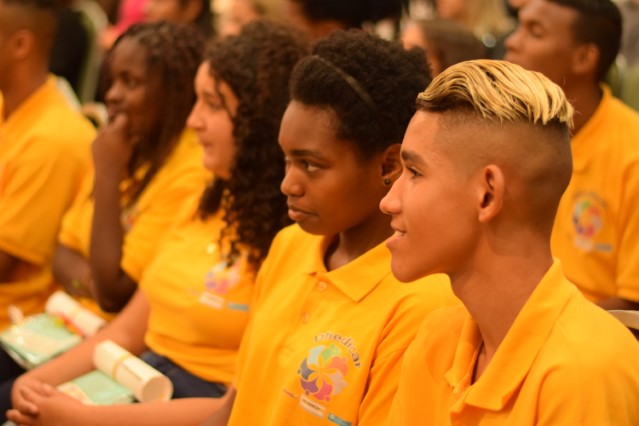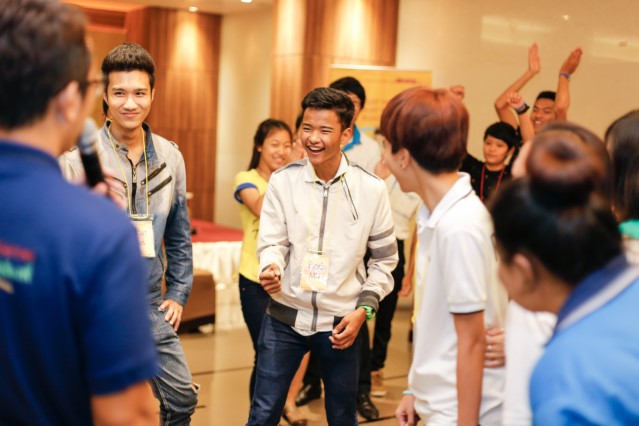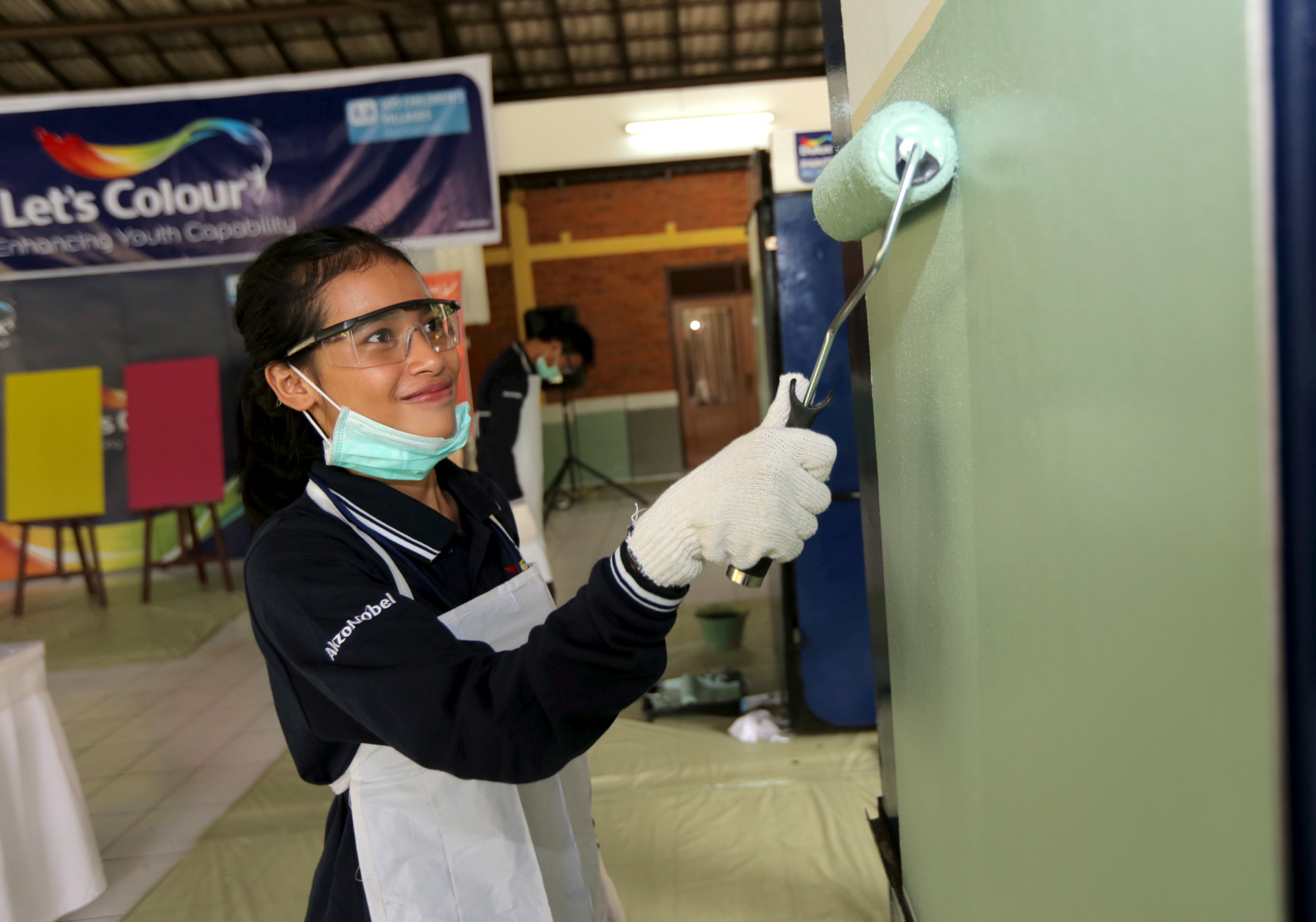YouthCan! employability and entrepreneurship
Active
The world of work is tough for young people from vulnerable families or those leaving alternative care. They face mental health challenges, skill shortages, limited social networks, increasing their risk of digital illiteracy, social exclusion, homelessness, precarious jobs, and poverty.
In a joint effort, corporate volunteers offer employability and entrepreneurship training, mentorship, and support during initial work experiences, both in person and online. Through individual and group sessions, they connect via YouthLinks Community, a digital platform fostering global collaborative learning. In exchange, corporate volunteers increase job satisfaction and use the skills they learn by being part of YouthCan! at work.
Entity
SOS Children's Villages
Youth organization, civil society, non-governmental, non-profit organization
Technical assistance, expertise and implementation; Policy, advocacy and convening power; Financial and/or in-kind contribution
Partners
-
TK Elevator
Private sector
Technical assistance, expertise and implementation; Financial and/or in-kind contribution
-
AkzoNobel
Private sector
Technical assistance, expertise and implementation; Financial and/or in-kind contribution
-
Siegwerk
Private sector
Technical assistance, expertise and implementation; Financial and/or in-kind contribution
-
DHL Group
Technical assistance, expertise and implementation; Policy, advocacy and convening power; Financial and/or in-kind contribution
Sustainable Development Goals & targets
-
4.4 By 2030, substantially increase the number of youth and adults who have relevant skills, including technical and vocational skills, for employment, decent jobs and entrepreneurship
-
8.5 By 2030, achieve full and productive employment and decent work for all women and men, including for young people and persons with disabilities, and equal pay for work of equal value
-
8.6 By 2020, substantially reduce the proportion of youth not in employment, education or training
-
10.2 By 2030, empower and promote the social, economic and political inclusion of all, irrespective of age, sex, disability, race, ethnicity, origin, religion or economic or other status
-
10.3 Ensure equal opportunity and reduce inequalities of outcome, including by eliminating discriminatory laws, policies and practices and promoting appropriate legislation, policies and action in this regard
-
17.9 Enhance international support for implementing effective and targeted capacity-building in developing countries to support national plans to implement all the Sustainable Development Goals, including through North-South, South-South and triangular cooperation
-
17.16 Enhance the Global Partnership for Sustainable Development, complemented by multi-stakeholder partnerships that mobilize and share knowledge, expertise, technology and financial resources, to support the achievement of the Sustainable Development Goals in all countries, in particular developing countries
-
17.17 Encourage and promote effective public, public-private and civil society partnerships, building on the experience and resourcing strategies of partnerships
Achievement At Glance
In 2021, YouthCan! celebrated its fifth year and with that milestone, our co-developed strategy was focused on improving programme quality. In practice, this meant digital evolving into an integral part of the programme and more young people being reached in countries where YouthCan! is already established. In particular, digitalization unlocked access for a greater number of young people in rural areas beyond the cities where corporate partners are often based. As a result, more than double the number of young people received practical support, training,or mentorship in YouthCan! compared to the previous year: 14,485 participants from 41 countries were supported on their journey to decent work.
To further strengthen the spirit of co-creation, in 2021, the Youth Advisory Board (YAB) was launched, which established a group of 10 young people to advise on the programme at both a global and local level. During their first year, the young people have taken a role in the development of the new YouthLinks digital
platform and mentoring activities.
We were joined by more partners and volunteers, and we particularly welcomed more local partnerships, embodying our principle of local ownership.
Key Highlight On Guiding Principle
- Focus on achieving impact at the country level and pursuing regional perspectives, where appropriate
- Expanded multi-stakeholder partnerships
- Multi-dimensional and multi-sectoral approach
description
In 2022, more than 73 million young people aged 15-24 were unemployed and 289 million worldwide were NEETs, with young women over 3 times more likely to be in this situation.
Entering the world of work is particularly tough for young people from vulnerable families or those leaving alternative care (at age 18 or earlier). They often face mental health challenges, skill shortages, and limited social networks, increasing their risk of digital illiteracy, social exclusion, homelessness, precarious jobs, and poverty.
YouthCan! is an opportunity for young people without adequate parental care to achieve (self)employment and lead independent lives. A network of SOS Children’s Villages, corporate and supporting partners builds on the common expertise and adapt the programme based on an individualised and holistic approach.
By 2030, YouthCan! aims to substantially increase the number of self-reliant young people leaving SOS Children’s Villages family-like care and family strengthening programmes. By 2020, we aim to involve 10 global partners and 250 local partnerships in reaching out 20.000 young people in 40 countries in a quality way. A global YouthCan! project team working closely with a regional structure and local contacts will monitor the commitment to further develop and grow.
https://www.sos-childrensvillages.org/
Deliverables and links to SDG targets
-
10,000 young people trained in relevant skills, including technical and vocational skills, ICT skills and soft skills
4.4 By 2030, substantially increase the number of youth and adults who have relevant skills, including technical and vocational skills, for employment, decent jobs and entrepreneurship
Corporate partner offer customized support to empower young people with knowledge and relevant skills.
BY: Dec 2024
-
10,000 young people gained work experience, including through internships and quality apprenticeships
10.3 Ensure equal opportunity and reduce inequalities of outcome, including by eliminating discriminatory laws, policies and practices and promoting appropriate legislation, policies and action in this regard
Corporate partner offer first work experience to young people. Workplace exposure includes internships, job shadowing, apprenticeships, ...
BY: Dec 2024
-
10,000 young people benefitted from employment services, including job search assistance, job fairs and career counselling
17.16 Enhance the Global Partnership for Sustainable Development, complemented by multi-stakeholder partnerships that mobilize and share knowledge, expertise, technology and financial resources, to support the achievement of the Sustainable Development Goals in all countries, in particular developing countries
Corporate partners act as mentors and guides for the young people. They offer career orientation and exposure to different kinds of job profiles.
BY: Dec 2024

